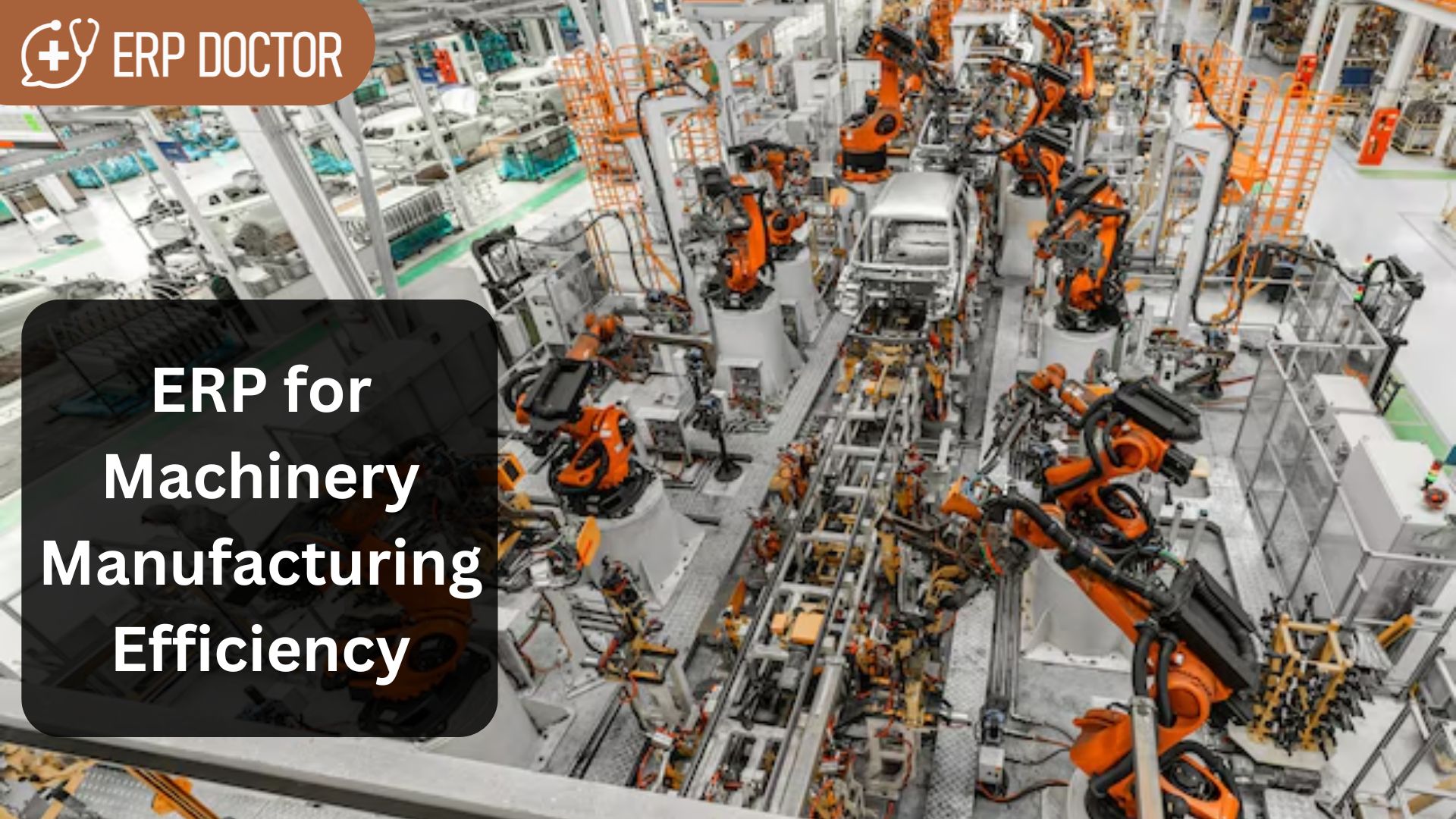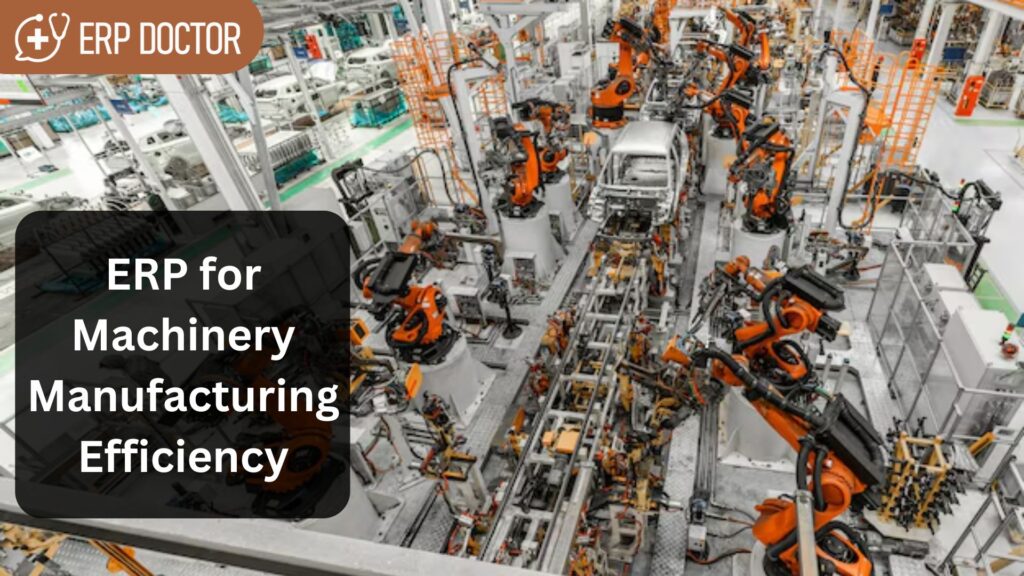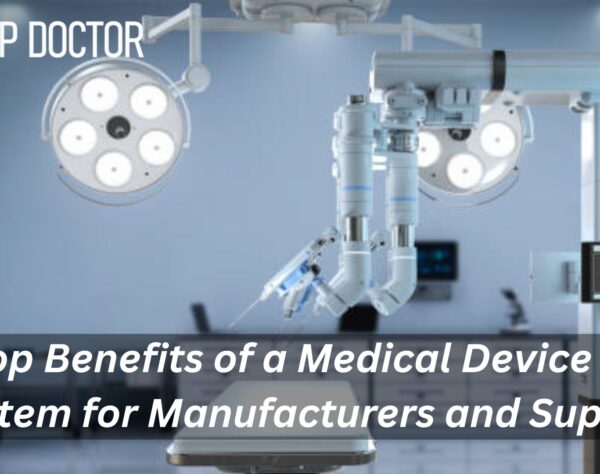
ERP for Machinery Manufacturing Efficiency

ERP Strategies for Machinery Manufacturing Efficiency Gains
The machinery manufacturing industry faces unique challenges such as high operational costs, complex supply chains, and the constant need for innovation. Implementing ERP (Enterprise Resource Planning) systems has become a critical strategy for machinery manufacturers to optimize operations, reduce costs, and stay competitive. This blog explores the key ERP strategies for improving efficiency in machinery manufacturing processes. By leveraging these strategies, machinery manufacturers can achieve significant improvements in productivity, quality, and customer satisfaction. Ultimately, ERP can help machinery manufacturers stay ahead of the competition and achieve long-term success.
Understanding the Role of ERP in Machinery Manufacturing
ERP systems integrate all facets of an organization, including finance, HR, production, and inventory management, into a single platform. In the machinery manufacturing sector, ERP serves as a vital tool to streamline processes, enhance visibility across departments, and ensure better resource allocation. These systems help reduce redundancy, eliminate silos, and provide real-time data to inform decision-making.
Streamlining Production Processes with ERP
One of the most significant advantages of ERP for machinery manufacturing is its ability to streamline production processes. By using ERP software, manufacturers can track production schedules, monitor machine utilization, and reduce downtime. ERP systems offer functionalities like automated scheduling, demand forecasting, and real-time tracking of production tasks. This results in optimized production cycles, reduced bottlenecks, and better resource management.
Key Features of ERP for Production Efficiency:
- Real-time monitoring: Track machine performance and prevent downtime.
- Production scheduling: Automate scheduling based on demand forecasts and resource availability.
- Inventory management: Integrate inventory with production data for accurate stock levels.
Enhancing Inventory Management
In machinery manufacturing, inventory management can be a complex task due to the large number of components, raw materials, and finished goods involved. ERP systems can automate inventory tracking, providing real-time data on stock levels, order status, and lead times. This ensures that manufacturers maintain optimal inventory levels without overstocking or understocking materials.
ERP systems also integrate with suppliers and vendors, enabling automated ordering and faster lead times. This reduces the risk of stockouts, improves cash flow, and ensures the smooth operation of production lines.
Optimizing Supply Chain Management
ERP systems provide an integrated platform for managing suppliers, logistics, and procurement. With real-time insights into inventory levels, lead times, and supplier performance, manufacturers can enhance their supply chain operations. ERP helps to optimize supplier relationships, automate purchase orders, and maintain timely delivery schedules, reducing delays in production and minimizing the risk of material shortages.
A seamless supply chain improves overall production efficiency, cuts operational costs, and ensures that materials are available when needed without disrupting the production process.
Improving Quality Control with ERP
Quality control is crucial in machinery manufacturing, where even minor defects can lead to costly repairs and customer dissatisfaction. ERP systems offer quality control modules that allow manufacturers to monitor production quality, track defects, and ensure compliance with industry standards. By integrating quality control into the manufacturing process, ERP systems help identify and address quality issues early, preventing costly rework and maintaining product integrity.
Enhancing Maintenance and Downtime Management
Equipment maintenance is essential for ensuring the smooth operation of machinery manufacturing. ERP systems incorporate preventive maintenance (PM) and predictive maintenance (PdM) features, which help track the condition of machinery and schedule maintenance before breakdowns occur. By automating maintenance schedules and monitoring machine performance, manufacturers can avoid costly downtime, extend equipment life, and improve overall productivity.
Cost Management and Budgeting with ERP
Controlling costs is vital for machinery manufacturers to maintain profitability. ERP systems provide detailed insights into various cost centers such as production, materials, labor, and overhead. By tracking expenses in real time, manufacturers can identify areas for cost-cutting and efficiency improvements. ERP systems also assist in budgeting and financial forecasting, helping manufacturers make informed decisions about resource allocation and investments.
Key Benefits:
- Cost tracking: Track operational costs across various departments.
- Budgeting: Streamline budgeting processes and allocate resources effectively.
- Expense management: Identify cost-saving opportunities in production and procurement.
Data-Driven Decision-Making with ERP Analytics
ERP systems collect vast amounts of data, providing valuable insights into production, inventory, finances, and supply chains. By utilizing ERP analytics, manufacturers can make data-driven decisions that optimize operations and drive growth. For example, ERP can analyze production trends, customer demands, and market conditions to inform decisions on pricing, procurement, and expansion. This helps manufacturers stay ahead of industry trends and meet customer demands more efficiently.
Table: ERP Benefits for Machinery Manufacturing
| Benefit | Impact on Efficiency |
|---|---|
| Production Scheduling | Optimizes resource allocation, reduces delays. |
| Inventory Management | Prevents stockouts and overstocking, ensuring smooth operations. |
| Supply Chain Optimization | Reduces delays and streamlines procurement processes. |
| Quality Control | Identifies defects early, preventing costly rework. |
| Maintenance Management | Minimizes downtime, extends equipment life. |
| Cost Management | Identifies cost-saving opportunities and optimizes spending. |
| Data-Driven Decision Making | Enables proactive management through insights and forecasts. |
ERP: Key to Machinery Manufacturing Success
ERP systems are indispensable tools for machinery manufacturers aiming to improve operational efficiency, reduce costs, and enhance product quality. By automating key processes such as production scheduling, inventory management, and maintenance, ERP systems streamline operations and enable manufacturers to remain competitive in a rapidly evolving market. Implementing ERP solutions can lead to significant efficiency gains, increased profitability, and a more agile manufacturing operation capable of adapting to future challenges.
Adopting the right ERP strategy tailored to the unique needs of machinery manufacturing can unlock substantial growth opportunities while optimizing current operations.
Visit ERP Doctor for Expert Solutions and Support
Want to speak to an expert? Fill in the form below, and we will be in touch with you shortly!







